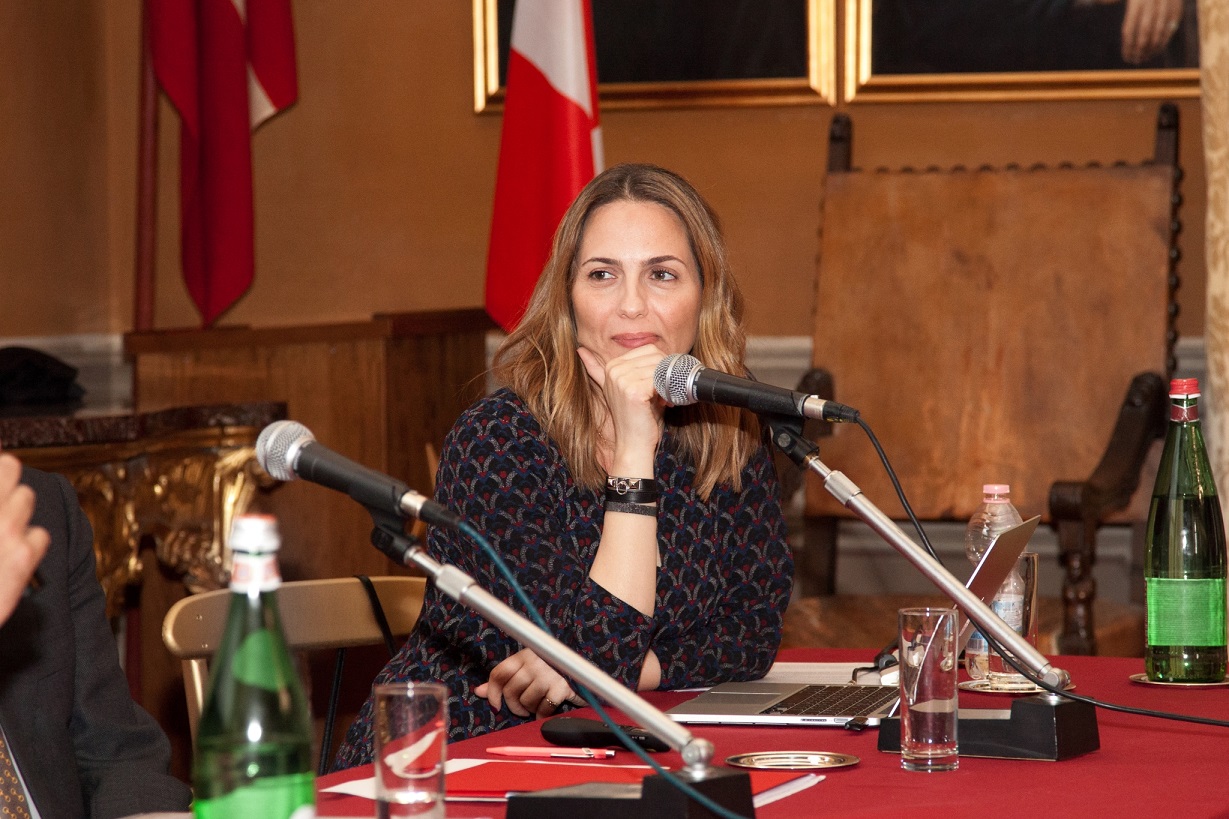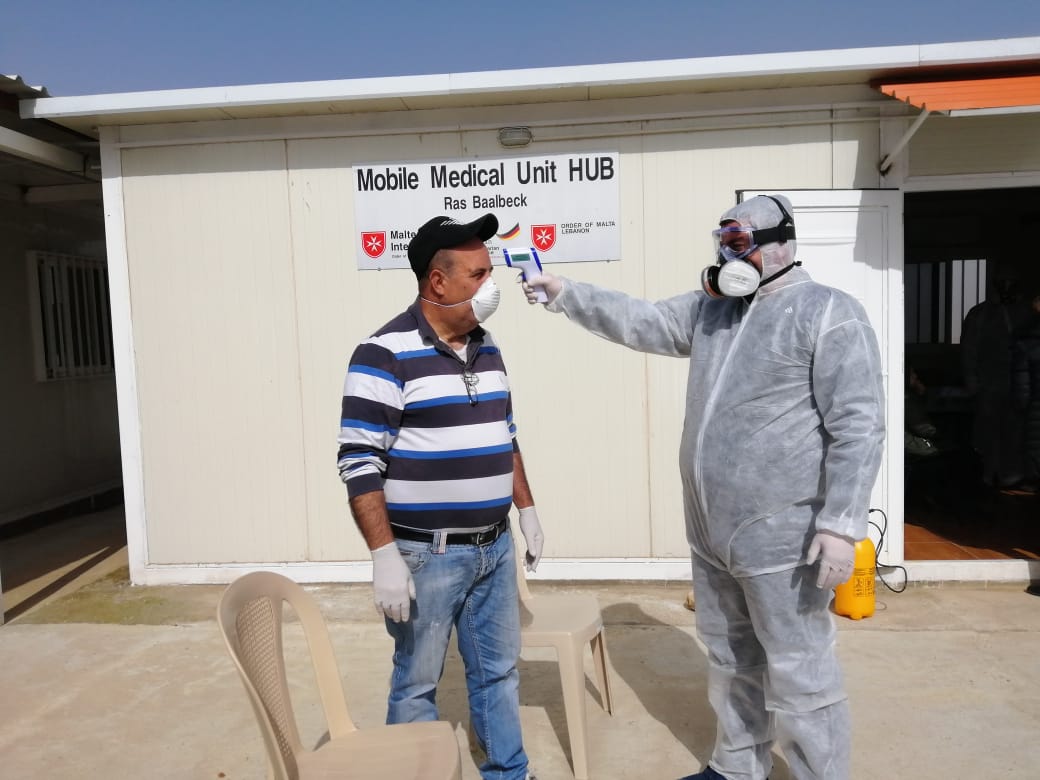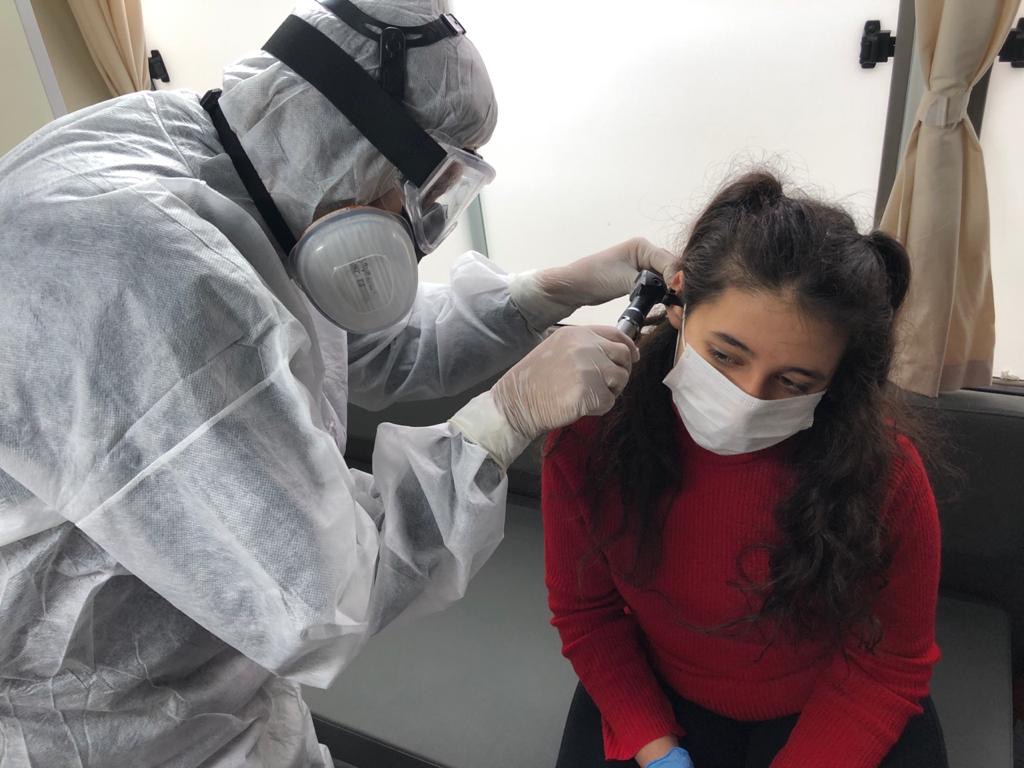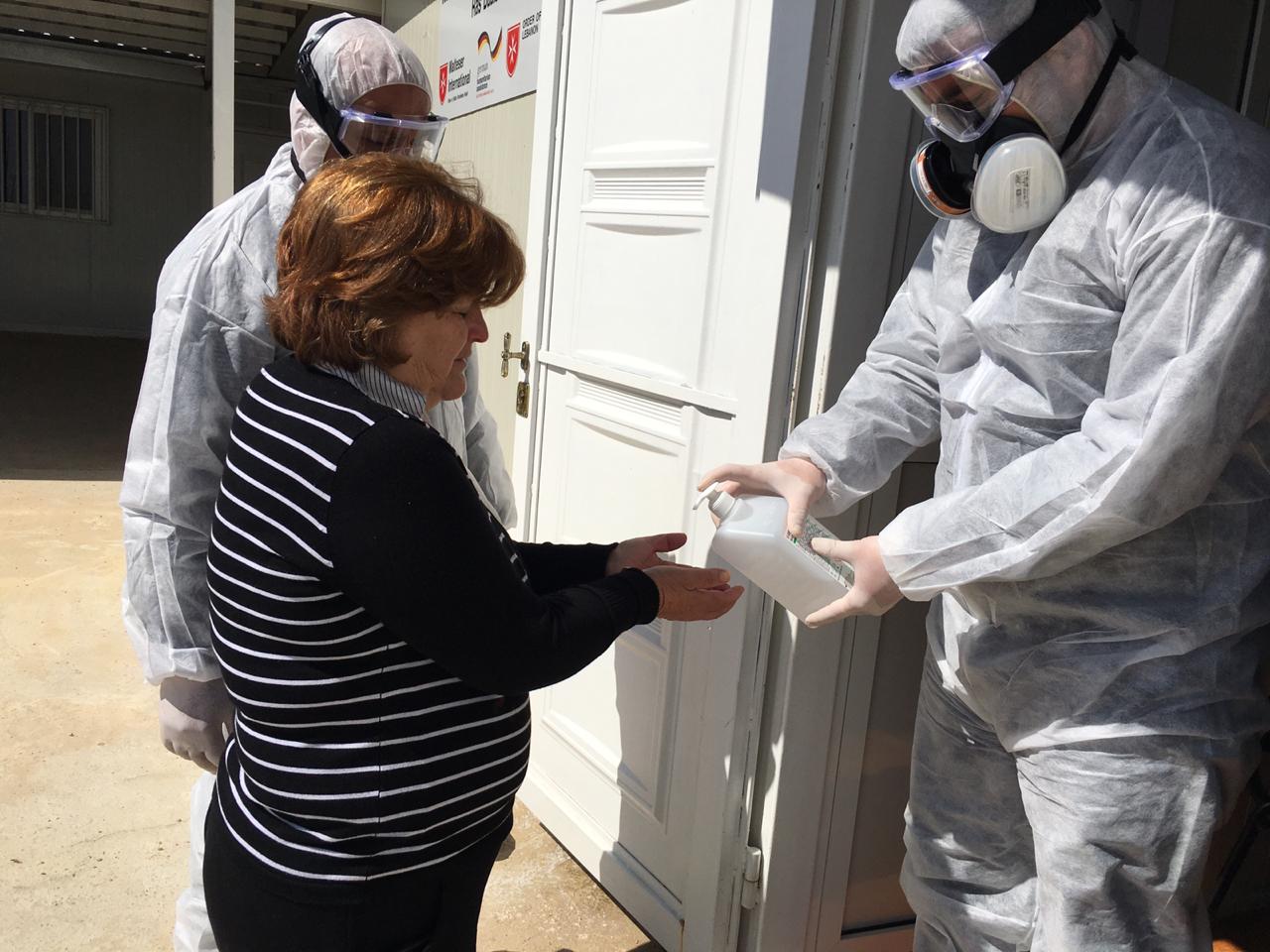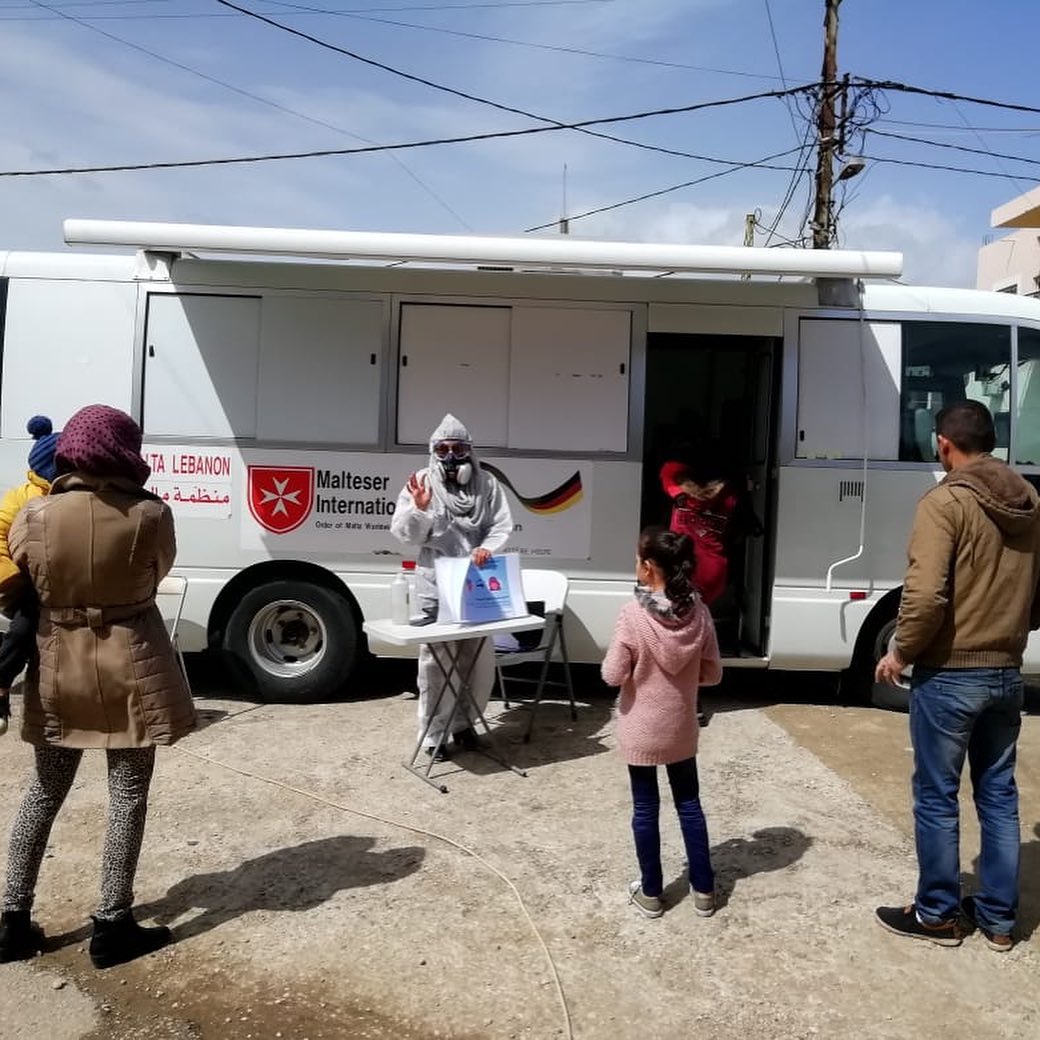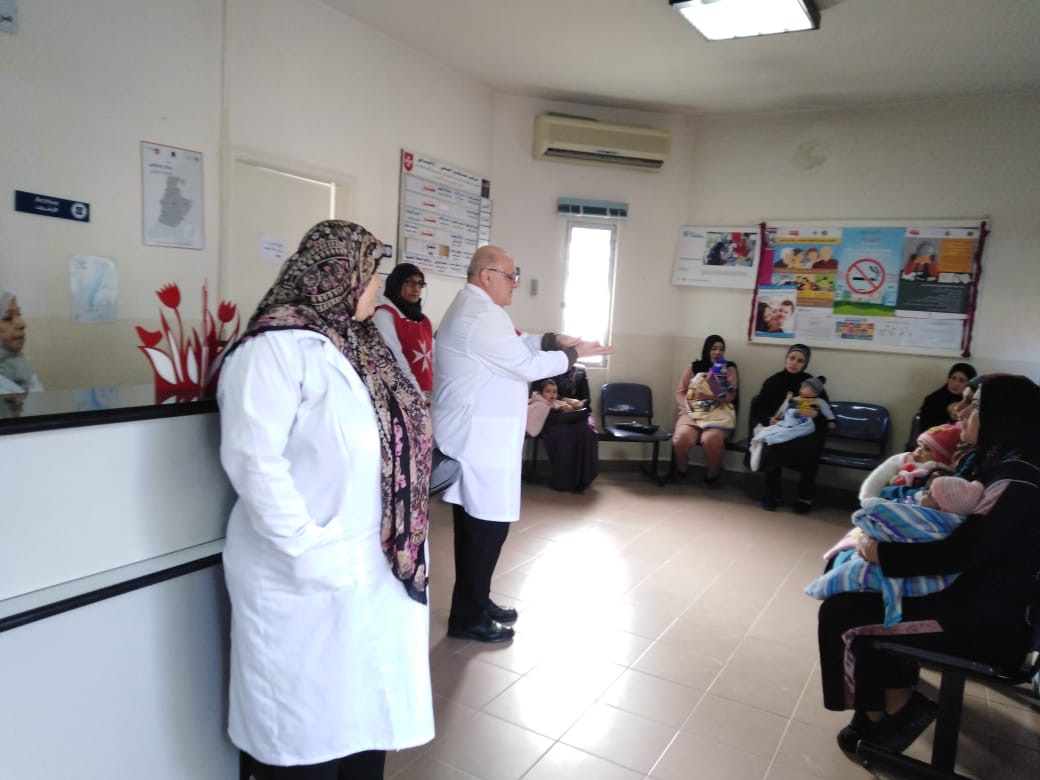According to the World Health Organization, Lebanon is still in phase 3 of Covid-19 transmission with 548 cases and 19 total deaths on April 7th. However, and since the number of people tested daily is very low (less than 500 tests performed throughout Lebanon for a total population of 6.000.000, including Syrian, Palestinian and Iraqi refugees), it is feared that the numbers of people infected far exceeds the official figures. Non-state actors might be quarantining entire communities of patients in areas outside state control. On the situation in the Middle East country and how the Lebanese Association of the Order of Malta has reorganized its programs we spoke with Oumayma Farah, General Delegate of the Lebanese Association.
The number of Covid 19 confirmed cases in Lebanon is contained, however given the fragile health system and the ongoing political crisis in the country, what impact do you expect from a possible growth in numbers?
Indeed the number of confirmed cases is still very low, as we speak, Lebanon has shut schools, cancelled public events and halted flights for non-residents, in terms of quarantine and crisis response, Lebanon is meeting international standards, however, the healthcare system is facing a serious lack in basic supplies due to the financial crisis that started last year, leaving many hospitals unequipped. The country’s health care system is in an increasingly dire state, according to a report by Human Rights Watch. All hospitals, public and private, face supply shortages and are unable to import equipment like ventilators. Lebanon can absolutely not afford an outbreak, specially not in the refugees’ settlements where strict confinement measures have been taken by the municipalities to protect both the locals and refugee’s population who already live in very difficult conditions as this will only lead to a disaster in human losses.
For four decades the Order of Malta in Lebanon has been serving the most marginalized, the sick, the disabled, the elderly and the many refugees living in settlements. You have 10 operating medical centres and many mobile medical units (MMU). Are these facilities still operating and how have you adjusted your work with the health hazards posed by Covid 19?
The Order of Malta in Lebanon operates a network of 30 different projects spread throughout the country. All our “social” projects such as the Chabrouh camps for the differently-abled, the Caravan project, the Youth programs have all been halted until further notice in order to protect the beneficiaries and the volunteers.
Thanks to the special ties we have with the different public instances and specially the Ministry of Public Health (MOPH), we are able to pursue our health care mission through our primary health care centers and the mobile medical units, which are all open and operating under a strict protocol to ensure the safety and security of all the staff and patients, as per the WHO and MOPH recommendations.
The centers continue to work securing the most important consultations and the medicine, especially for the chronic diseases. All our nurses have followed awareness and prevention sessions so they can themselves conduct sessions to educate the community on Covid-19.
As for the MMU, with the country’s containment measures, several regions were unreachable, especially in the Beqaa area.
Thanks to the exceptional will of the field staff and the good collaboration of the municipalities, they were able to operate again according to their regular itinerary but adapting their parking location to wider spaces in order to ensure proper distancing in the waiting areas.
The Akkar MMU continues to operate as usual. A strict protocol is applied, patients are screened upon their arrival, sanitization is done before entering the MMU, masks and gloves are given to those who do not have ones. Covid-19 prevention and awareness are provided while people are waiting. Referrals are only done to the Laboratories and hospitalization is postponed as per the physician’s recommendations to delay all referrals except for the urgent issues.
The Akkar and North East Beqaa MMUs are implemented in collaboration with Malteser International.
Are you facing problems in reaching out to all those you normally serve like unregistered migrants or elderly people who must isolate themselves?
Because the country is on lockdown, we sometimes had to adapt the MMU’s itinerary or change the usual parking spots to respond better to the containment measures. However, we did put all our efforts to never stop responding to the needs of the suffering populations, specially the refugees and the local host communities through our MMUs. Each MMU is treating between 100 and 120 patients a day.
As for the centers we are gathering lists of the most vulnerable who cannot reach our centers, we are reaching out to them in their homes to provide them with their monthly medicines. It is important to note that there is already a shortage of supply of chronic medicines from the Ministry of Public Health and the demand in our centers is growing.
Moreover, a hotline for each center has been set up so that people refrain from going out if there is no emergency, encouraging tele-consultations with a close follow-up from our doctors.
Your programmes reach every angle of the country and many are run in close collaboration with the Shia, Sunni and Druze communities. Is the current situation affecting your partnerships in any way?
On the contrary, the partnerships and collaborations have been strengthened as we are all facing this crisis together. This virus does not differentiate between rich or poor, race, color or creed, we are all in this crisis together and we will come out of it stronger.
Moreover, before Covid-19, the World Bank warned that the aggravation of the current economic situation would lead to an explosion of poverty level reaching 50% of the Lebanese population. Covid-19 has dramatically impacted the situation and in a much quicker way. We will have to reinforce our partnerships and join forces with all communities to be able to respond more effectively to the growing needs of the entire suffering population.
Have you set up any new intervention linked with the Covid 19 or are you planning to do so?
The Covid-19 pandemic did not halt other diseases and in these tormented times, to be able to pursue our mission of patient care as well as to contribute to slowing the spread of the virus while protecting our doctors and caregivers is already a big response to the pandemic.
In addition, in the MOPH plan in the next phase of the pandemic, our primary healthcare centers and MMUs will have to be involved in monitoring and following up on Covid-19 positive asymptomatic and recovered cases, especially in the remote areas.
We are also studying further responses to support our structures and our partnerships, such as the civil-military one we have just signed with the Lebanese Army, the most respected institution in Lebanon that is also being very active in the Covid-19 national response. In addition, further to private and public demands, we are trying to expand our help with the provision of ventilators, PPE (personal and protective equipment) and Covid-19 PCR and/or Rapid tests to reinforce our response to the population’s needs.








